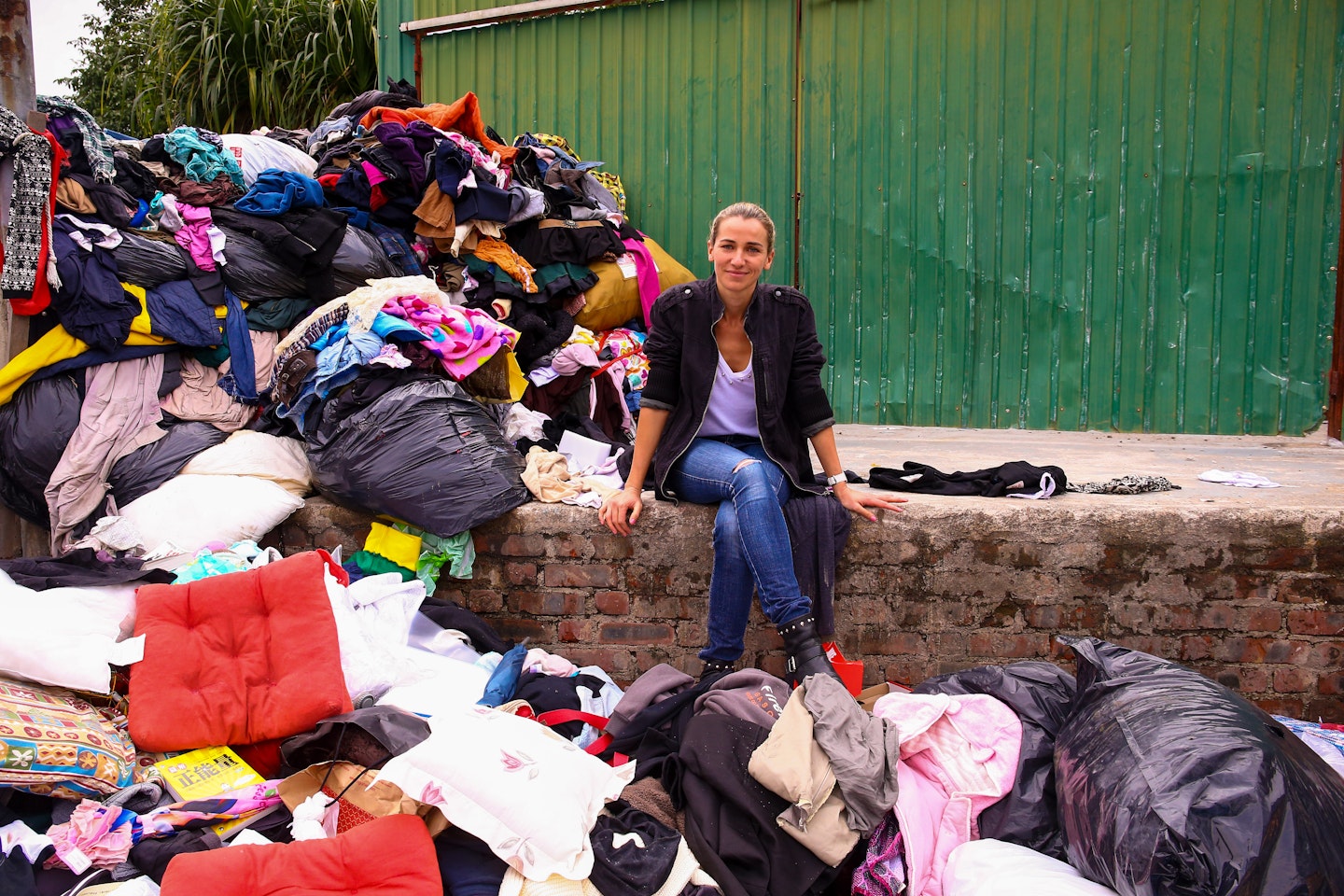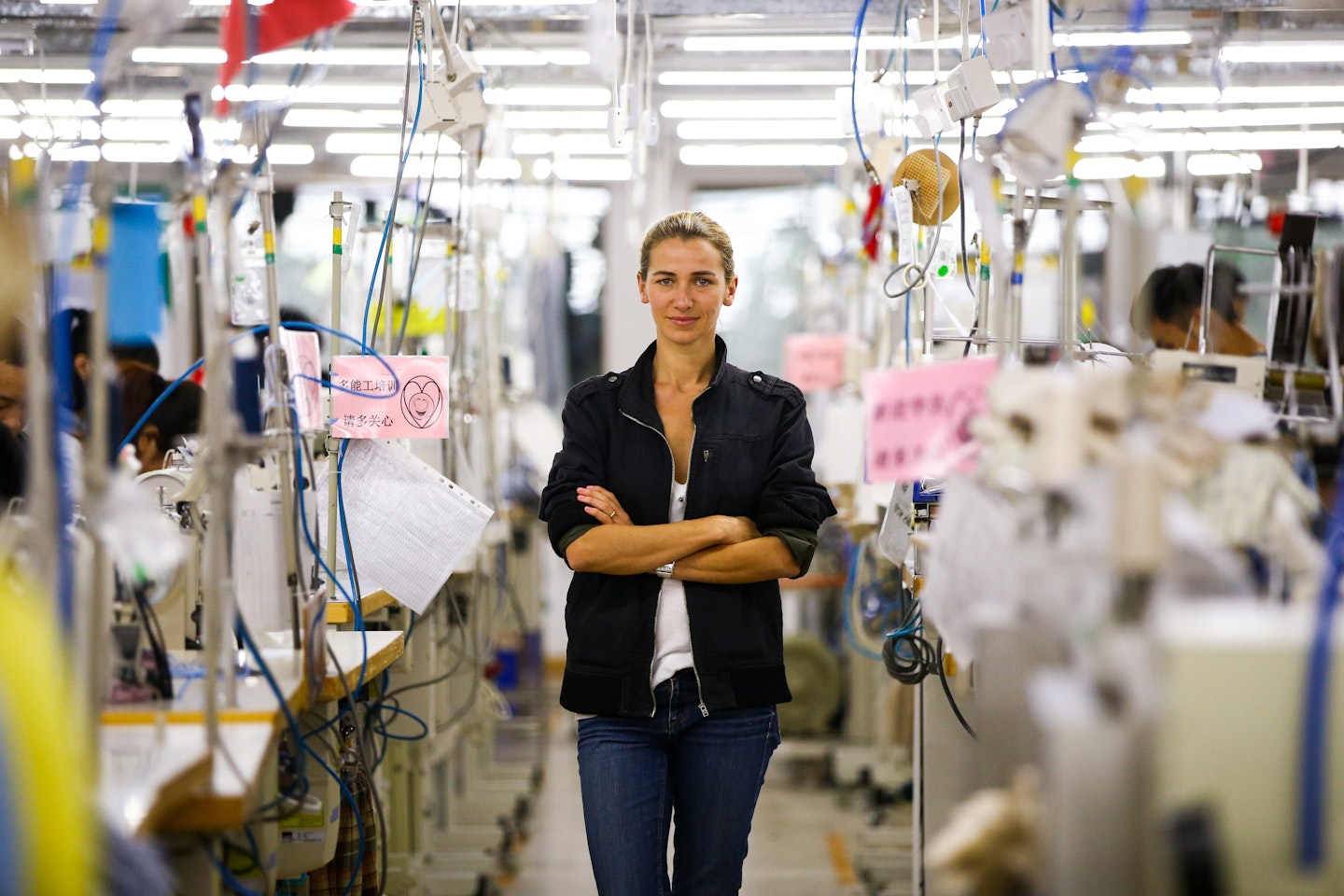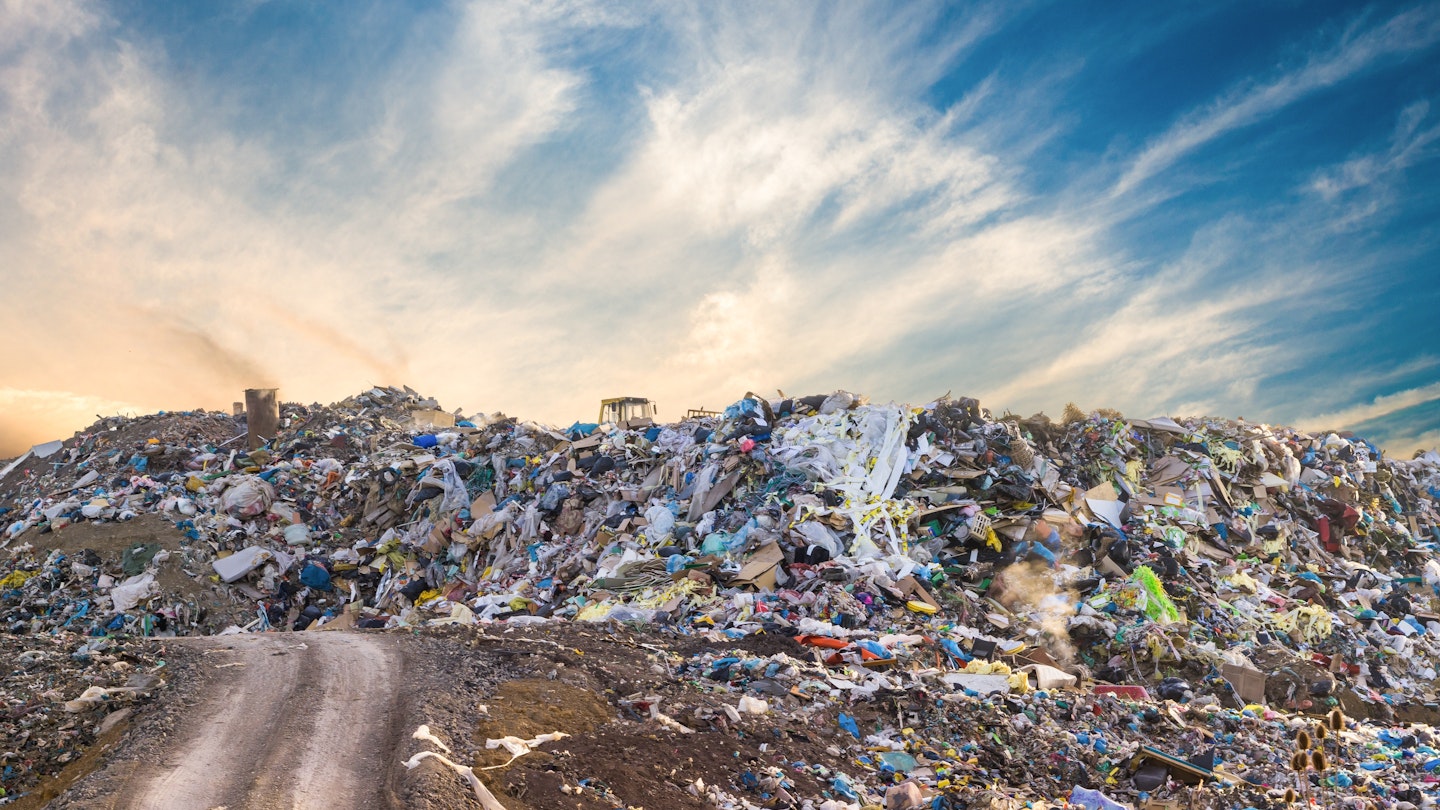In the last 15 years, the fashion industry has fostered a throwaway culture with trends routinely changing every six months without a second thought for the environment. The result is a waste crisis that is verging on catastrophic. Each year an estimated [300,000 tonnes](http://www.wrap.org.uk/sustainable-textiles/valuing-our-clothes-clothes) of clothing is thrown into landfills by the UK alone. Adding to this, a recent survey (by [Weight Watchers](https://www.weightwatchers.com/uk/press-release-jan-2017jan-2017)) estimated that £10 billion worth of apparel owned by UK shoppers is going unworn. With our climate at a tipping point, one Hong Kong-based NGO has taken on the mammoth task of changing the way we consume, not by telling us and lecturing the consumer but by tackling the problem from inside out.
When Christina Dean founded the charity Redress 11 years ago, she says the industry was the ‘wild west’. Nobody was talking about the impact consumption and China’s industrialisation was having on the environment, and nobody cared to listen. Now over a decade later, Dean’s NGO is at the forefront of the fight to make the industry more sustainable.
‘If you look at it from a business perspective there are harsh realities to consider,’ Dean states matter-of-factly. ‘We’ve got a growing population and limited planetary resource. An industry like fashion is heavily reliant on natural resources, and at the same time, we have competition for these resources from other industries. We have too much competition for too few resources, so fashion leaders need to source more sustainably, they need to make their supply chains more sustainable, and they have to reduce energy, carbon, water. It is a black and white resource limitation and any CEO that doesn’t realise that honestly doesn’t deserve their title.’ Being realistic, as the world’s population continues to soar, land availability will be dedicated to the necessities, like food. For fashion to be relevant in 40 years’ time, it needs to wise up to this.
Redress’ method is multi-pronged and begins at the point before production, which much like with tech, beauty and countless other high-waste yielding fields, has long been opaque, shrouded in an air of ‘don’t ask, don’t tell’.
‘It’s very difficult to tell a manufacturer that they must do this and must do that, as they just look at you like “who the hell are you?”’ Dean explains why they’ve side-lined educating the apparel factories on sustainable best practice and headed straight to the designer’s conceptualising the apparel. ‘Manufacturers are in a very difficult situation because the brand which is squeezed by the consumer squeezes them on the price. Honestly, it is an economic problem as the manufacturer has not been given the money they need to do the job properly.’ Though the factories aren’t their main focus, Redress has educational programs for the manufacturers and educate burgeoning designers through factory visits on sustainable methods.

The lion share of Redress’ problem-solving initiative is a contest that targets new designers who are still impressionable and willing to be educated on how a circular economy functions. ‘Research suggests that 80% of the environmental impact of a product is laid down at the design stage in a designer’s mind. The designer influence is huge, whether it’s at Stella [McCartney] or H&M.’ Dean rationalizes that it's these people who are
‘key change-makers in the entire apparel chain, because they decide the colour, the shape, the quality, the trimmings, the supply chain, where it’s made, who makes it, what’s the price point and what’s its recyclability is’. As the old marketing adage goes, catch them young, you’ve got them for life.
The annual Redress Design Award launched in 2006 as Redress’ way of galvanising these up-and-coming creatives. It's open to contestants around the world and gives them a global platform at Hong Kong fashion week to showcase their sustainable designs. Whether they win or not they get access to educational programs, digital learning material and production support. It’s similar in many ways to Shanghai Fashion Week’s Sustainable Fashion Award, which is supported by luxury house Kering.
The most recent winner is Brit-based Kate Morris. Her colourful and zany knitwear earned her the top Redress Design Award prize.
Not only do Redress attack the industry from inside, but they’ve brought to market a post-purchase scheme that recycles the debris of fast fashion. In conjunction with Zara, they have a ‘take back program’ in Asia. ‘We collect the clothes that the consumers drop off in store, sort and redistribute it as we don’t want any clothes to go to waste’, Dean says. While this works on a local level, Dean admits scalability is an issue. H&M who have a similar program work around this by recycling the collected clothes to create fibres for their own production. But, until someone who can find a technical solution to recycle post-consumer fibres, which can be a mixture of polyester, cotton, spandex and the like, and create a new fabric that functions and pass chemical tests, this recycling can only go so far. ‘Forgive the vulgar analogy but, if you look at paper, it’s easy to recycle paper into recycled toilet paper that you can wipe your ass with because it’s quite a basic product. But when you are looking at clothing it’s not as simple.’
Just yesterday, Dean launched a new platform, called R Collective, which brings the two strands of Redress together harmoniously. It’s a new website that functions as your run-of-the-mill e-commerce platform, but actually sells up-cycled clothes designed in-house by the NGO and their Redress Design Award winner. The first collection is sleek and tailored and stocked in Lane Crawford and Barneys New York.
Like we would use ‘April showers’, there’s a seasonal phrase uttered in China called ‘airpocalypse’. It was first coined in Beijing in 2012 as a response to the thick, toxic smog that half a billion people live with because of manufacturing. Not only is it causing respiratory problems but coupled with the 2.5 billion tonnes of polluted wastewater produced annually by industrialisation, it’s poisoning food and causing water scandals. It’s been calculated that Chinese factories make 33.7 per cent of America’s clothing, making the country an epicentre of global manufacturing. And, even though many factories are outsourcing production to India and Africa, it was seeing the impact in China that led Dean to start the charity in fact.
Before founding Redress Christina was a trained dentist working as a journalist. After moving to Hong Kong, she had a ‘lightbulb moment’ while cycling through the hinder land of China. ‘I saw the scale of the industry at large and when I say industry I don’t just mean fashion and textiles, I mean all industry and how savage it is on the planet. For me it was looking at the reality that we are all on this planet, we’re a growing population, we are all consuming, the middle class is growing, we all think we have the right to consume and perhaps we do but how does that carry on in a way that doesn’t break the world?’

Just five years ago she had a second shockwave moment when she realised her work is far from done. ‘I was in a landfill in Hong Kong shooting a story for several hours with a TV crew about waste rates and the daily scene of the landfill. As it was in a developed city it was well organised, which meant I had this three-hour epiphany watching all these dumpster trucks continuously dumping trash into a landfill. This is a complete dead end in terms of resources utilisation. All the resources that went into every piece of trash is completely dead.’
For her, the first moment was about the scale of the industry and the second was about consumer habits. She found herself asking, ‘how do we continue to consume and how do we consume better?’, she thought, ‘there needs to be a way to be sustainable that is really palatable, inspiring, that’s comfortable for the consumer’s lifestyle.’
It was around this time that Dean realised that even if she can change the industry just a little, it’s better to do that than not at all. At my asking whether big business are utilising her know-how for ‘greenwashing’ her unswayable positivity stood unchanged. ‘I am either extremely naïve or very optimistic, but I think greenwashing is a thing of the past’ she insists. ‘If you rewound 10 or 11 years ago it was rampant, it was smacking you in the face all the time. Now the world has become a lot more educated, thank goodness. I don’t think that greenwashing is prevalent anymore because I know so many people working in the supply chain who are very genuinely working with the biggest companies to make elements greener. I see the sincerity at the back end, and I just don’t think its greenwashing. The fashion industry is enormously fragmented, the supply chains are mind-bogglingly vast and the business is complicated so you can’t expect a company to radically change all its sourcing overnight. It's a drip process, so I would still salute the company that made one radical eco handbag without chromium in the leather or whatever it is. I would still salute that because what they have done is they’ve tried a new material, they have tried a new process, they have brought it to the market and then if the consumer will support it then it will scale’.
There’s no doubt that it’s time to get onboard with Dean’s vision of the future of manufacturing, not least because she says, ‘anyone who doesn’t take sustainable fashion seriously is dosey.
Like this? You might also be interested in...
Follow Lucy on Instagram @lucyalicemorris
This article originally appeared on The Debrief.
